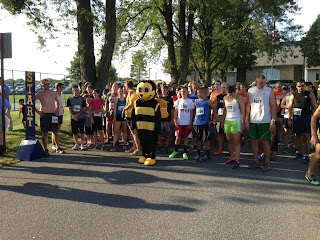It's officially getting cold outside. For Davey Hackenberg's bees, that means going down to Florida! I wish I was a bee right now. The November/December time period works best because the height of hurricane season is over in Florida which means less chance of any hive disasters from the weather. For beekeepers, this is an important time to make sure hives have PLENTY of food for the winter so the colony can stay strong for the almond crop early next year.
Here are some facts and figures about honey fraud and the reason True Source Honey was created by several large honey packers, including Dutch Gold. Recently, a large Canadian honey packer also joined True Source to combat the large problem of honey fraud. You can check out www.truesourcehoney.com for more information and the latest information on arrests, news and you can check if the honey you have at home is True Source Certified.
GMO's have again been in the news recently. Voters in Washington recently had the opportunity to decide if their food should be GMO labeled. Just like in California, the initiative was defeated. No change here in the states, but a couple weeks ago a Mexican judge banned GMO corn in Mexico sighting environmental concerns. No real evidence has shown that GMO food has negative health impacts on humans over the long term, but the amount of research is mounting on GMO's affect on bees. Some GMO crops don't produce pollen, leaving less food for bees. They are created to be pest resistant. I agree some pests can do a lot of damage on crops, but trying to repel all insects, like bees, cannot be good. Also, "Roundup Ready" crops are designed to be sprayed with herbicides. The application practices used to distribute these herbicides is another concern for bees. Being doused with man-made chemicals certainly doesn't sound like something any living thing should be subjected to.
Neonicotinoids continue to be one the focuses of bee death and it seems that some growers in Canada have been heard by Dupont Pioneer, the world’s largest producer of hybrid seeds. Health Canada noticed that areas of high corn production were also areas of relatively high bee mortality. Dead bees in these areas were tested and 70% of them had neonicotinoid residue on them. The bees most likely had been exposed to the insecticide in resulting dust when treated corn seed was planted. As a response to this and similar findings, Dupont is now offering neonic-free corn and soybean seed to Canadian farmers. This should help Canadian farmers and bees next year in 2014, but the company is not planning to offer this in the U.S. anytime soon as a company official stated that the neonicotinoid issue is "less visible" in the U.S.
This year there have been a number of news articles in the press about the decline of the honeybee. American beekeepers as well as beekeepers from around the world have experienced significant declines in their bee numbers. I thought it was interesting how the recently reported percentage of bee loss over the last winter in Canada was 28.6%. Some Canadian territories reported higher loss percentages, the overall percent from Canada was 28.6%. This number seemed quite low so I got Davey's opinion. He believes that the number is definitely lower than reality, also noting that the man in charge of these numbers in Canada is employed by one of the giant pesticide companies that many believe is the cause of bee loss. Other recent reports have also been talking of the 90% butterfly decline in Eastern Canada. This is clearly a shocking decline that Davey believes is caused by similar factors to bee decline. When thousands and thousands of acres are being converted to corn fields all the time, pollinating insects have less and less sources of food. At the same time, they are being increasingly bombarded with more and more chemicals which may help crops, but harm everything else in the process. Just in the United States alone, 40% of all corn grown goes to making ethanol, a substance proven to cut down on a car's gas mileage! It is only a matter of time before we realize we cannot keep doing this for the sake of the pollinators, and in extension, all life on earth.
















